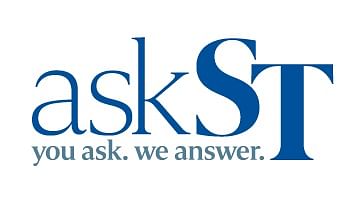SINGAPORE - Scam cases in Singapore are at an all-time high this year, with 10,402 reported as at August, nearly double of the 5,229 for the same period last year. These include e-commerce scams, which involve fraudulent transactions, as well as social media impersonation ones, where scammers pose as friends or followers of the victims, and loan scams where scammers pretend to be licensed moneylenders.
On Friday (Nov 20), Singtel said the number of scam calls received by its customers this year has also doubled, to more than 5,000 compared with last year.
While scammers can often appear convincing, there are a few key signs that can help you figure out if a call, message or e-mail is genuine or not.
1. Can I tell if a call is fake or not before I pick up?
A: Yes. Be on your guard when the call is from an unknown number or is prefixed with a plus (+) sign, as the call is likely coming from overseas. Watch out in particular for calls that come with a +65 prefix, which looks like Singapore's country code, but are actually overseas calls. Domestic calls will not display the + prefix.
2. Can I tell if a call is fake or not based on what the caller says?
A: Yes. Scammers will often fake attractive deals such as low-interest loans and free gifts to lure you. They do this not just over the phone, but also via text messages or on e-commerce platforms. The rule of thumb is, if the deal sounds too good to be true, it probably is.
But regardless of what they are offering, to get your money, scammers will need to ask you for your personal or financial details such as bank account numbers and passwords at some point, or request payment for services rendered over the phone. Genuine callers from a government agency or service provider will not ask for these details or for payment.
3. What about calls where I am told I have a problem that needs fixing?
A: This is an increasingly common tactic that scammers are employing to play on unsuspecting users' anxieties. For example, Singtel said the most common type of scam call encountered by its customers was from scammers pretending to be tech support. These scammers would pretend that Singtel services were about to be terminated or that customers' Internet connections needed to be fixed.
Watch out for callers who ask you to download a certain software or app so that they can "help" you fix the fake problem. You could be handing them the remote control keys to your device instead.
Again, they may also ask you for payment, a request which you should ignore if you are still on the call.
If you suspect that you are the target of a scam call, hang up immediately and, if unsure about whether the problem is real, contact the relevant organisation through official channels to verify.

4. Can I tell if an e-mail is fake or not, even if it appears to be from a legitimate source?
A: Yes. Check the e-mail address of the sender carefully. If there are any strangely or incorrectly spelt words, or if the address ends with an unfamiliar suffix, you could have a fake on your hands. Official-looking e-mails that do not address you by name are also likely to be fake.
Scam e-mails will also often include instructions to click on links or to download attachments for more information. These links direct victims to a seemingly legitimate page where they are told to input their personal and financial details. Consign such e-mails to the bin, or notify the organisations being spoofed of these scams.


